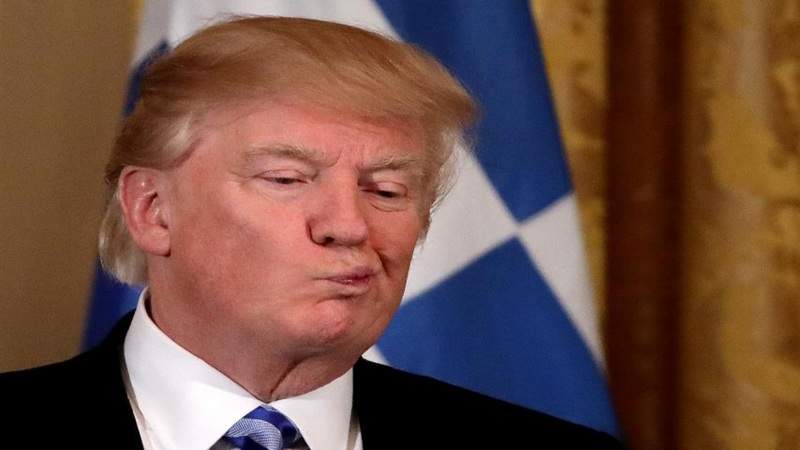Report: Trump Must Resist Pressure to Revive the 'Failed' Campaign in Yemen

News - Middle East: The National Interest published an analytical article by researcher Will Smith, in which he argued that the aggressive US-led military campaign against Yemen was ineffective, costly, and strategically misguided.
Smith, a fellow at the Stimson Center’s "Reimagining the Grand American Strategy" program, urged US President Donald Trump to resist pressure from traditional hawkish factions in Washington. He emphasized that Yemen had not targeted the United States when the Gaza war resumed, and that its military operations since mid-March had been focused on the Israeli entity.
Following Trump’s sudden announcement of a ceasefire, Smith noted that the resulting agreement effectively restored the previous status quo between the US and Yemen. He welcomed the decision, stating that it prevented a prolonged, open-ended conflict that would have come with high costs and serious risks. He cautioned the Trump administration against being dragged back into war—especially amid continued Yemeni strikes against Israel and mounting criticism from within Trump’s own political circle.
Smith described the campaign as "misguided from the outset," arguing that it was unnecessary to protect US economic or security interests and was unlikely to succeed. He urged the administration to reject political pressure to "finish the mission" and instead maintain its decision to step away from the the aggression against Yemen.
He pointed out that soon after the air campaign began, the limits of air power in Yemen became apparent. Despite nearly continuous strikes over a month, the US failed to achieve air superiority. Smith also criticized CENTCOM’s metrics of success, which focused on the number of munitions used rather than strategic outcomes.
US intelligence assessments, Smith wrote, had warned early on that the Yemeni forces could quickly regroup and rebuild. He also noted the historical context, stating that US military history is filled with failed or costly campaigns that produced little strategic gain.
Smith further warned that as the ineffectiveness of air power became clear, some officials began considering a broader ground campaign to support Saudi-Emirati-aligned forces against Yemen. He added that the pressure to escalate would have intensified had there been American casualties—something that Yemeni forces came close to achieving on several occasions, according to reports.
The article also addressed hawkish voices in Congress advocating for a renewed offensive. Smith expressed concern that President Trump himself raised the prospect of resuming the bombing campaign, threatening on May 15 to "return to attack" if Yemeni forces struck American vessels again.
Smith concluded that reaching a ceasefire in Gaza was clearly in America’s best interest and warned against reigniting a failed campaign in Yemen. He highlighted that Yemeni officials had consistently stated their attacks were intended to pressure Israel to end its war on Gaza—and that they notably halted their operations during the January ceasefire.
He stressed that timing is crucial: any Israeli escalation in Gaza could prompt renewed Yemeni strikes in the Red Sea. Ending the war in Gaza, Smith argued, would serve broader American interests.
In closing, Smith praised Trump for acknowledging the campaign’s failure and shifting course, calling it a rare moment of flexibility in his foreign policy approach.
In a major strategic miscalculation, the Trump administration’s military campaign against Yemen in early 2025, meant to crush the Yemeni Armed Forces and assert US dominance in the Red Sea, ended in costly failure.
Initially designed as an extended, multi-phase operation involving airstrikes, targeted assassinations, and even a potential ground invasion, the campaign faltered within weeks. Despite deploying advanced aircraft, carrier groups, and billions of dollars’ worth of weaponry, the US failed to gain air superiority or disrupt Yemeni resistance, which downed multiple drones and continued maritime attacks unabated
Washington’s sudden halt of the campaign, without consulting Israel, coincided with a dramatic escalation: a Yemeni ballistic missile strike on Lod Airport in occupied Jaffa and the loss of a $67 million fighter jet. The administration announced a ceasefire mediated by Oman, effectively acknowledging Yemen's resilience and deterrent power.
#Yemen #US #Trump 25-05-28-
11:41
Zionist Channel 12: Examination of Yemeni Missile Debris Ongoing amid Suspicions It Contained Three Warheads
11:34
Zionist Channel "i24 News": Five interceptor missiles from different systems, including "THAAD," "Arrow," "David’s Sling," and the "Iron Dome," attempted to intercept the Yemeni missile
11:34
Zionist Channel "i24 News": Debris from a Yemeni missile fell near "Ben Gurion" Airport after air defenses failed to intercept it last night
10:12
Palestinian sources: 70 killed in Israeli massacres across Gaza since dawn today
09:21
:Gaza Government Media Office: Journalist death toll rises to 240 after Khaled Mohammed Al-Madhoun martyred





